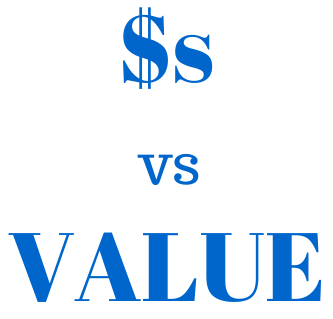This blog was inspired by a post to a LinkedIn group by a gentleman by the name of Jason Thurwanger. I felt that his words could not be wasted in a group so took it upon myself to blog about it. Aside from layout and a couple of grammatical changes I have not modified this at all. Jason deserves 100% credit for this next section that I’ve quoted.
“Fee-Driven Consulting vs Purpose-Driven Consulting
Do you know the difference? If you have utilized consultants in the past, you almost certainly do.
Fee-Driven Consulting produces lengthy reports after the consultant spends “x” amount of time reviewing data, coupled with some first-hand observations. These consultants treat the workplace like a crime scene, careful not to get their fingerprints on anything that can be tied back to them. Routinely, these consultants justify taking such a “clinical” approach by stating that they don’t want to create confusion/blur the internal lines of communication by having people wonder whether they should listen to the consultant or their own manager. It sounds logical enough that most clients allow themselves to be led down this path of thinking.
However, there are many problems with this approach, including a real lack of accountability on the part of the consultant. You see, for a consultant that is interested only in a fee, they want to personally involve themselves as little as possible for two very prevalent reasons.
- Firstly, if they don’t insert themselves into working “hands on” with the team, then they can always claim that the findings and recommended actions they provided in their report were not followed/carried out properly. This then projects the message that the vendor/client failed to utilize the consultant’s brilliance in the report(s) he or she provided correctly.
- Secondly, if the vendor/client is unable to leverage the findings/action items outlined in the reports, they may be tempted to contract the consultant again in order get the necessary help/expertise brought to the table for dealing with the proposed remedies.
On the contrary, a purpose-driven consultant is always chomping at the bit to work as a partner with the vendor/client to take the findings/recommendations and leverage that information into an improved end-product by working “hand-in-hand” with the vendor/client through the process. Some consultants will undoubtedly read that and be taken aback by the idea of putting themselves “on the line” should such efforts fail. To this Jason states that he would say simply that a consultant who does not know how to work collaboratively with a vendor/client in order to execute a proper course correction is not really a viable consultant in the first place.
The bottom line is that the consultant is either an expert in the area they are consulted to engage, or they are not. If not, your organization is wasting time, money, and client goodwill by working with such people. However, if the consultant is truly an expert and has your best interests at heart, you will see an immediate improvement in results. When using consultants, be sure you are partnering with the right ones. If you are working with the same consultant that you have been working with over improving Operations/Customer Experience for more than 6 months without seeing sustained and noticeable improvement, understand that it is time to work with a consultant that can actually add value to your organization and move on.
One more thing: There is a school of thought that believes the best consultants are more expensive. Please know that this school of thought is one that is not funded by proper intellectual capital. Frankly, some of the worst consultants available charge the most outlandish rates. Why? Well, after multiple failures, the ineffective consultant will be seen as being more closely aligned to being the next candidate for village idiot rather than someone who genuinely adds value. These folks understand this, so they charge more now as they know they do not have the “staying power” to consistently earn over time based on his or her results.
Good consultants are a worthwhile investment. Just understand that any other kind of consultants are not.”
Personally, I believe that I am a purpose-driven consultant. I understand my hourly/daily costs and that I am focussed on adding value and working towards achieving goals/deliverables. No matter whose budget is funding the engagement I do my best to provide an outcome to benefit the business, despite the politics involved in peoples hidden agendas.
It has always astounded me that companies engage and continually part with money for fee-driven consultants. I have respectfully discussed this with several of my more prominent customers where I’ve been engaged to clean up or rescue someone else’s project. Regardless of my opinion the customer has always believed that whilst the outcome has not been desirable, the consultant has still delivered to scope.
The bigest problem stems from the fact that project scopes and requirements are often too loosely written or not signed off by the business, consultants are not well managed, or customers are not mature or confident enough to challenge the outcome to ensure they get what they paid for. I find this really interesting, as this should be part of their governance and due diligence process.
Sometimes the customer would re-engage the same consultant(s). Why? How can that be justified? I guess it comes down to “better the devil you know”. But as Jason states “… it is time to work with a consultant that can actually add value to your organization and move on…”, otherwise you are simply pissing money up the wall.
Do you agree with Jason and I?

